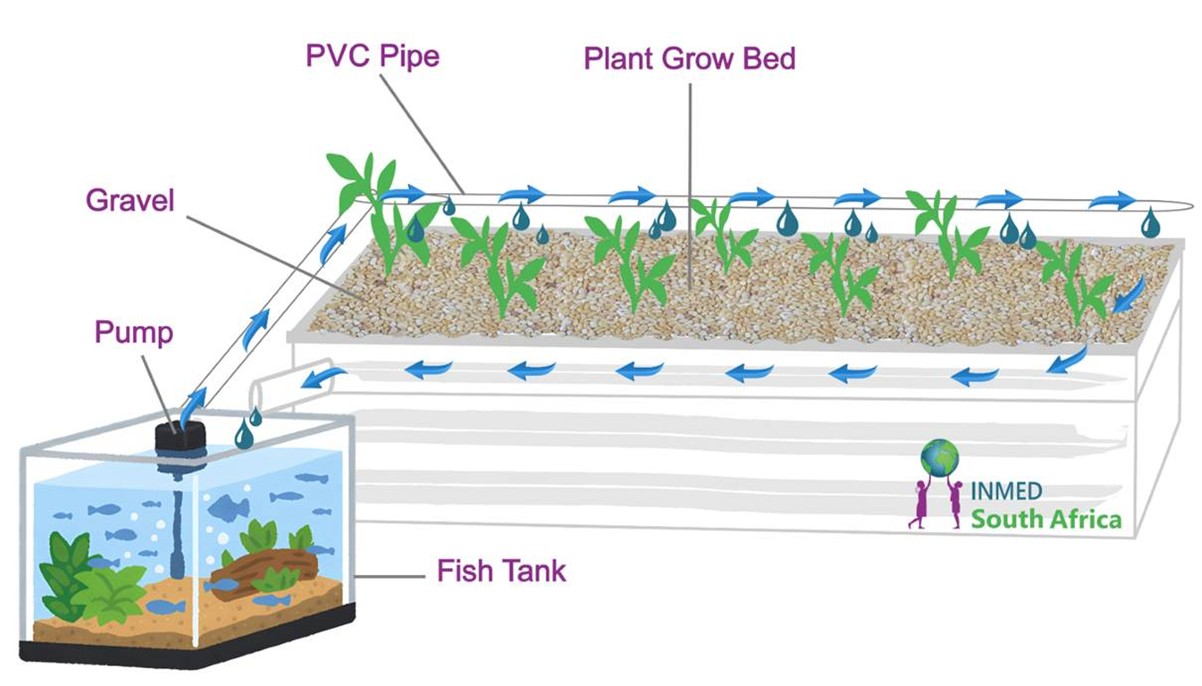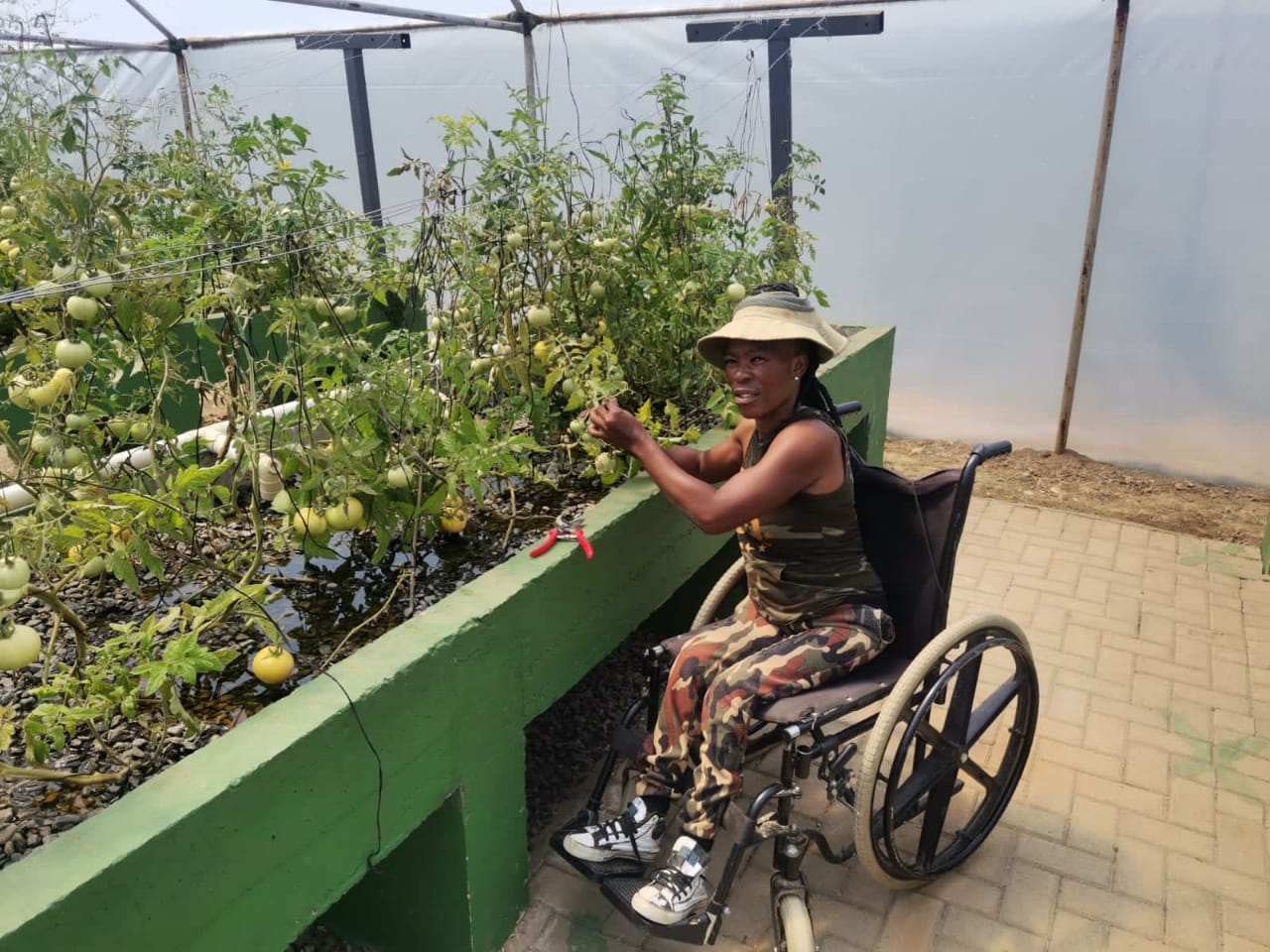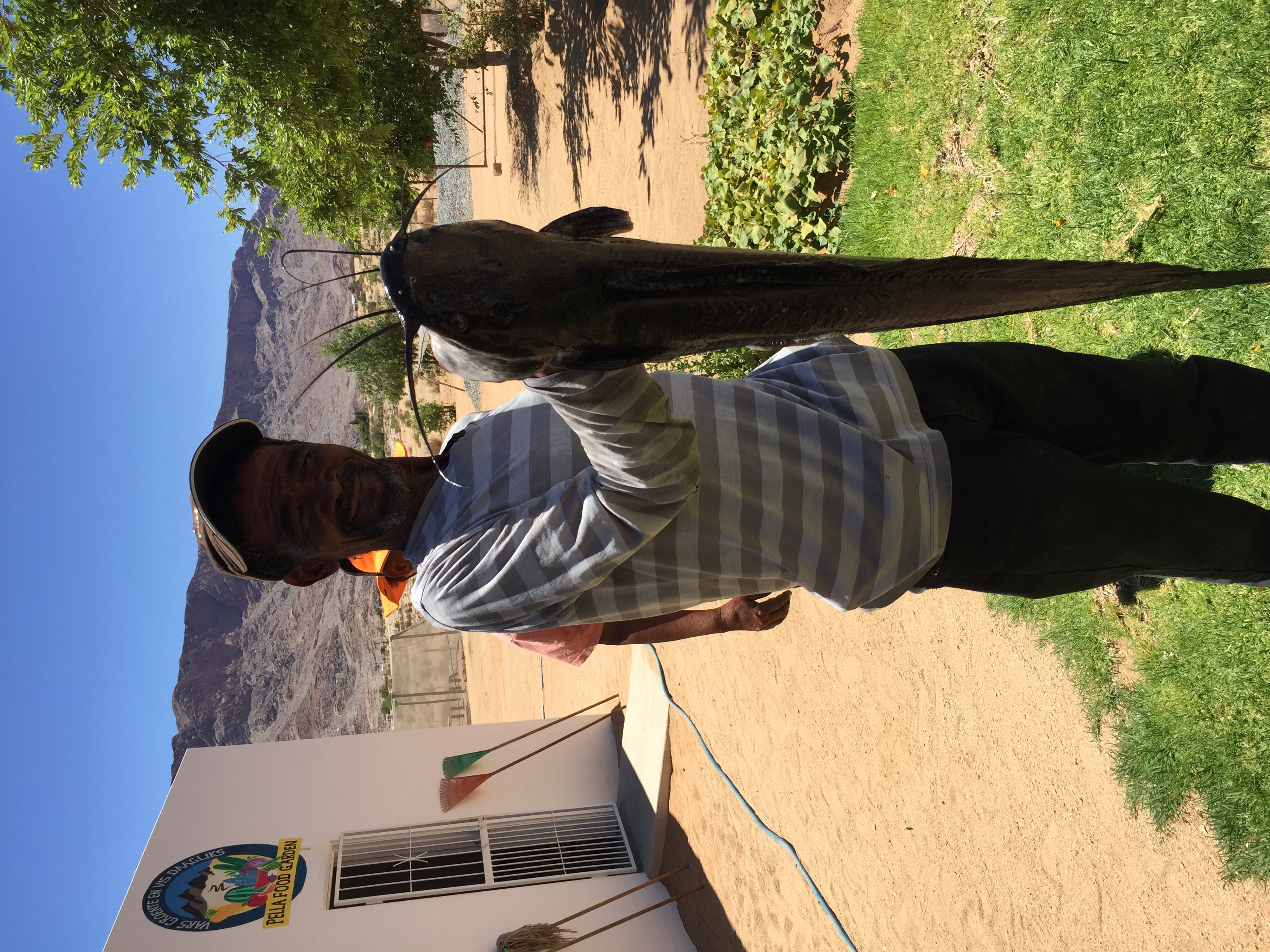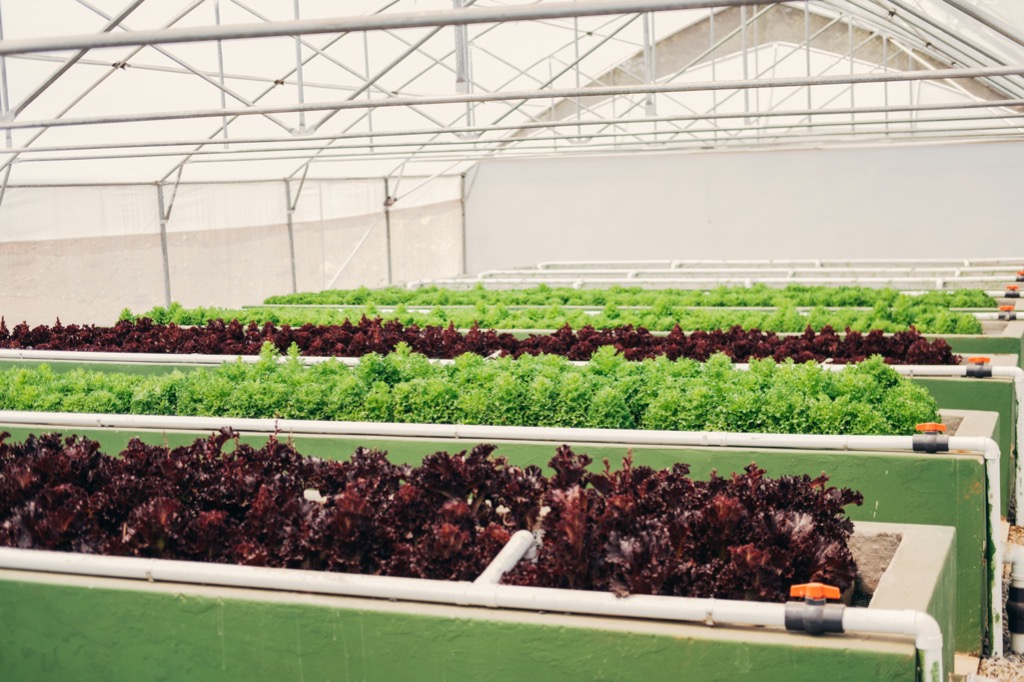Tackling food insecurity with Aquaponics in South Africa : Innovative Farming in the Kalahari Desert
Devolve decision making
Address structural inequalities
Invest in local capabilities
Build understanding
Flexible programming and learning
Organization: INMED South Africa
In the heart of South Africa’s Kalahari Desert, the Pella Food Garden Cooperative—a women-led vegetable production project—struggled to sustain its drought-ravaged land. Fresh vegetables became a rare luxury, as limited funds made seeds and fertilizer unaffordable. Facing food insecurity and dwindling incomes, cooperative members found it increasingly difficult to support their families.
This story is all too common in South Africa, where unemployment, rising food prices, and severe drought are creating a food production crisis. With 46% of agricultural land left unfarmed and a high number of small farms becoming economically unviable, the challenge is not only environmental but also social and economic.
A Climate-Smart Solution: Aquaponics
To combat this crisis, INMED South Africa introduced aquaponics—a cost-effective, sustainable farming method that merges fish farming (aquaculture) with soilless crop production (hydroponics) in a closed, climate-resilient system. These systems use 90% less water than conventional agriculture, rely on rainwater harvesting, and minimize energy use. Built from locally available materials like concrete and rebar, the system includes raised grow beds with gravel as a planting medium and closed fish tanks below. Water is circulated from the fish tanks to the grow beds, where it is naturally filtered before flowing back to the tanks.

Pictorial representation of the water flow system of a single aquaponics module
These systems minimize the use of natural resources while producing higher yields and fresh fish as an additional product.
Community Participation and Ownership
Recognizing the high potential of aquaponics, INMED launched the Aquaponics Social Enterprise (ASE) program to train and support communities. The hub-and-spokes model of the ASE program involves setting up central training hubs where local residents learn to build and manage aquaponics systems. These hubs collaborate with community leaders and institutions like schools and community centers to ensure skills transfer and local ownership.
Graduates from the training hubs establish their own small aquaponics enterprises (the 'spokes'), designed to be community-driven and sustainable. INMED supports participants in registering their businesses, securing funding, and sourcing materials locally to maximize efficiency and reduce costs. As spokes mature, they evolve into new hubs, spreading knowledge and innovation.
Empowering Women and People with Disabilities
A key focus of INMED’s ASE program is inclusive training, with priority given to women and people with disabilities. In the Free State Province, the Monyakeng Disabled People Cooperative has successfully implemented aquaponics on their land.
“The program has given us skills and support to build our own aquaponics enterprise. We are now able to generate profit and create jobs for the community,” shares Rosalia Sekgaphane, Chairperson of the cooperative.
Through the ASE model, the Pella Food Garden Cooperative has transformed from a struggling venture to the major provider of fresh fish and vegetables in the community. Member Esther Nell highlights the change: “We increased our production by almost 300%. We are now the main source of fresh produce for school feeding programs.”

Inclusive Education and Outreach
Beyond economic empowerment, INMED is integrating aquaponics into school curricula, teaching sustainable agriculture through hands-on lessons in chemistry, physical science, and life sciences. Plug-and-play aquaponics systems are being developed as educational tools to enrich school programs.
INMED’s ASE program also provides real-time support through web and app-based platforms, helping participants troubleshoot and connect with markets. This comprehensive approach ensures that knowledge transfer is continuous and accessible.
INMED’s ASE program is funded through blended finance, combining grants, investments, and revenue from produce sales. This model enables the program to be financially resilient and scalable, reaching vulnerable communities while maintaining local ownership.

Scaling Up for Impact
Since its inception, the ASE program has reached nearly 90,000 individuals across five South African provinces. Notable successes include:
300% increase in production at the Pella Food Garden Cooperative.
Tenfold production increase at the Ndofaya Cooperative in Soweto, Gauteng.
Integration of aquaponics into school curricula to enhance food production and education.
Support for disabled farmers through specialized training and equipment adaptation.

A Model for Climate-Resilient Food Systems
INMED South Africa’s aquaponics initiative demonstrates how locally led adaptation can combat food insecurity and resource scarcity while empowering marginalized communities. By leveraging sustainable, low-input technologies, the program is setting a precedent for community-driven climate resilience.
With ambitious plans to reach one million people within five years and ten million within a decade, INMED’s work is building a scalable, climate-resilient solution to South Africa’s food crisis. “We see aquaponics as a pathway to sustainable agriculture and inclusive economic growth,” says Unathi Sihlahla.